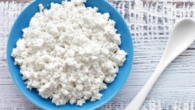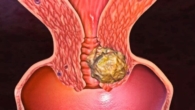
What helps women around 50 and older lose weight: advice from a nutritionist
0
According to nutritionist Nicky Williams, avoiding refined carbohydrates helps women who are “onset of menopause” and older to maintain a slim figure and lose weight.
Many women around 50 years of age and older know: at this age, the most unpleasant changes can occur with the figure, which begins to plump up and increase in volume. In her interview, nutritionist Niki Williams explained that hormonal changes that occur in the female body at this stage of life contribute to such fullness. As menopause approaches, the level of the sex hormone estrogen decreases in a woman's body, which forces the body to accumulate fat more carefully, because adipose tissue allows it to receive additional estrogen. A slowdown in metabolism contributes to this accumulation of fat, which, unfortunately, is also inevitable with age.
“Women going through perimenopause and menopause are more prone to insulin resistance and weight gain. This is due to metabolic changes, fluctuations in the activity of the adrenal glands, thyroid gland and sex hormones, as well as the fact that it becomes more difficult for the body to tolerate carbohydrates, “said Williams.
The good news is that, despite the changes taking place, it is still possible for women around 50 and older to lose weight. Here is what, in particular, the expert advises for this.
“Focus on the cruciferous family. Broccoli, cauliflower and white cabbage, beetroot leaves, arugula are especially useful for disposing of excess hormones through the liver.”
Eat “good” fats. The expert says that healthy fats are indispensable during the period menopause Women need them to produce hormones, absorb fat-soluble vitamins, maintain stable blood sugar levels that protect against increased appetite.
“Fats that should be added to the diet include olive oil, good-quality butter, avocado, nuts, fatty fish”.
Consume enough protein. This is necessary for a better balance of blood sugar, energy, detoxification, transportation and storage of hormones, and restoration of bones and muscles, the nutritionist explains.
“Give preference to m “good quality meat, fish, eggs, dairy products, beans, lentils, chickpeas, quinoa, nuts and seeds”. years should avoid processed foods containing sugar and white wheat flour.
Rejection of snacking. Williams advises to avoid snacking between meals – breaks without food should be between four and six hours : this prompts the body to more actively consume sugar reserves and burn fat for energy.
Long periods between dinner and breakfast. A nutritionist states: if 12 to 16 hours pass between dinner and breakfast , during which no food is consumed, the body begins to burn more fat.









Leave a Reply